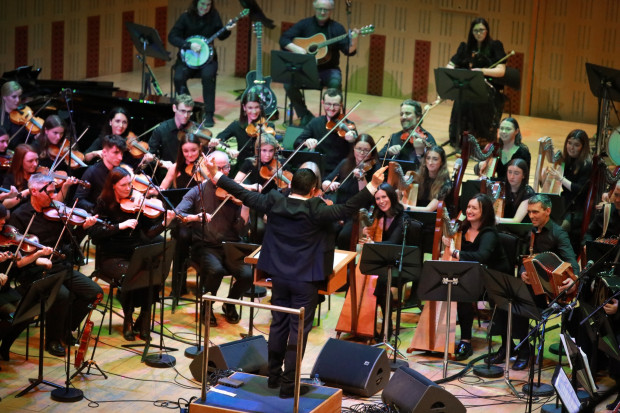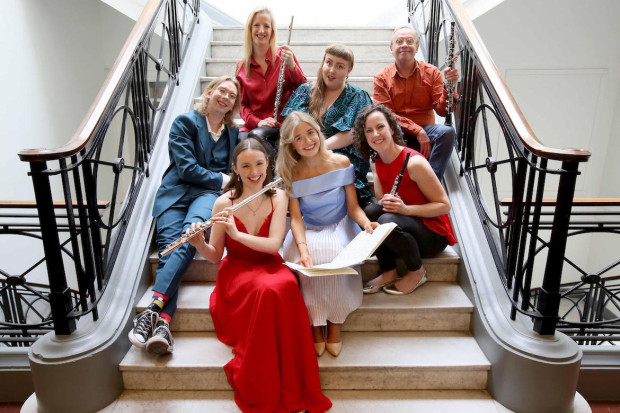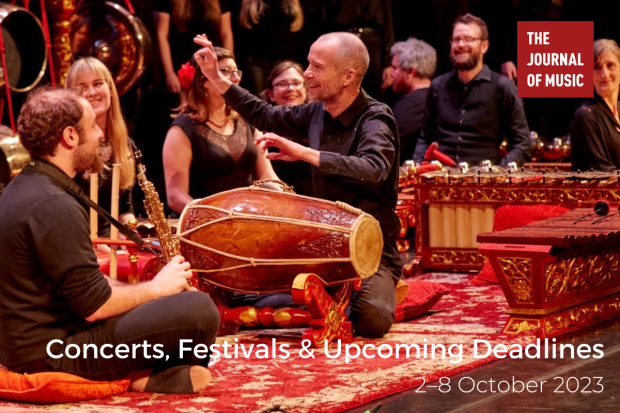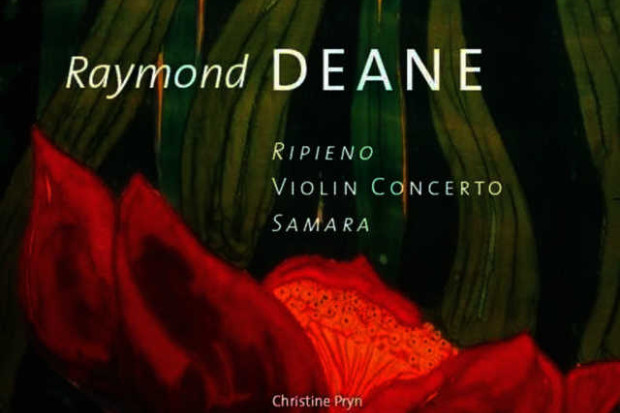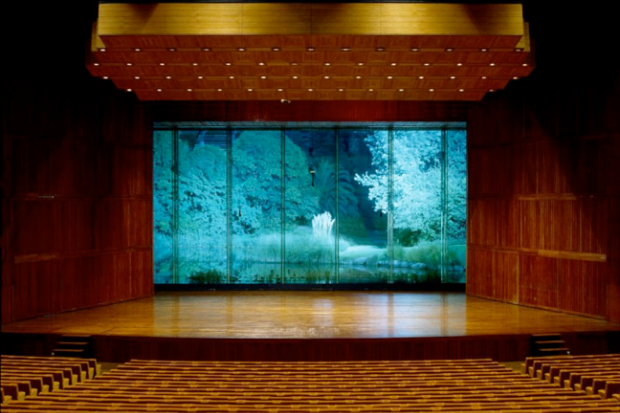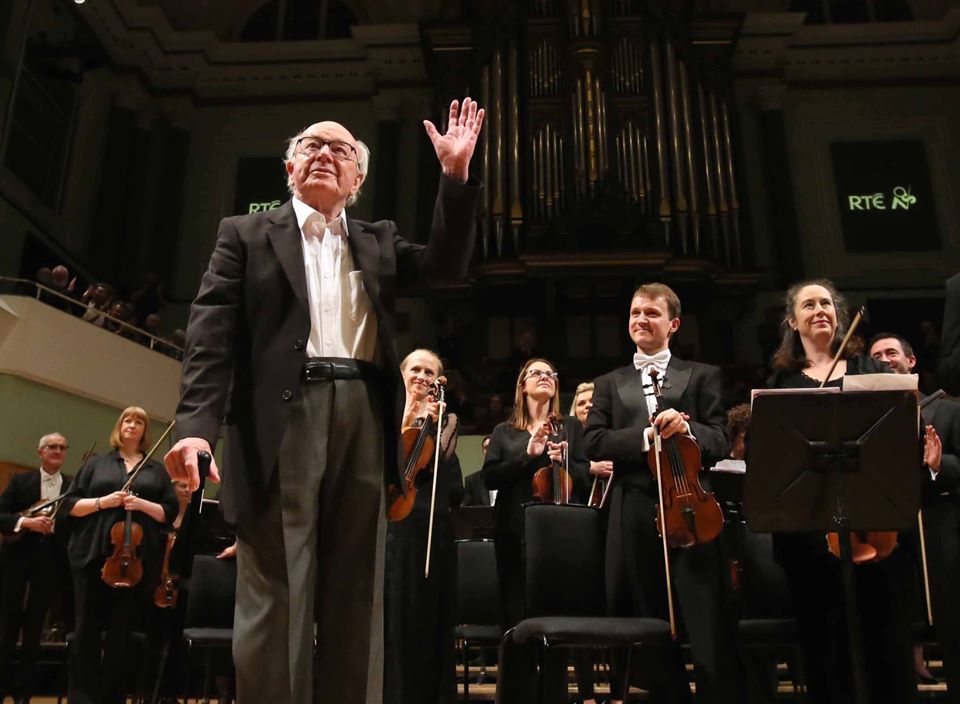
Composer John Kinsella at the NCH (Photo: Mark Stedman)
Missing the Main Theme
Last Friday, Ireland’s most prolific symphonist John Kinsella was presented with the National Concert Hall’s Lifetime Achievement Award on the occasion of the premiere of his Symphony No. 11 by the RTÉ National Symphony Orchestra. The programme, conducted by Jean Deroyer, also included a performance of Prokofiev’s Piano Concerto No. 3 and Sibelius’ third symphony.
Along with Seóirse Bodley, Kinsella is one of several Irish composers whose work started out embracing the European avant-garde in the 1960s but then retreated to a more traditional language from the late 1970s onwards. This symphony is quite representative of his work: in three movements, it takes a dramatic approach that moves between the menacing and the brooding with occasional reflective episodes such as a viola solo in the second movement. Kinsella has regularly cited Sibelius as an influence on his music and he writes in the work’s programme note that it was a recording of sketches for Sibelius’ projected eight symphony that provided the spark for this work. The problem with the symphony however is not that it ends up sounding too much like Sibelius, but rather that it sounds like Sibelius with all the main themes removed. Kinsella’s material is not particularly original in either melodic construction or orchestral texture and often resembles the kind of material that one finds in the secondary parts of better music. Take, for instance, the symphony’s tremolandi opening which resembles a minor key imitation of the start of the last movement of Sibelius’ fifth symphony. As an opening it’s reasonably effective but the difference is that what in Sibelius functions as an introduction and transitional motive between statements of the glorious main theme, in Kinsella, such material is the main theme. Nothing more substantial followed apart from a series of quite clichéd sounding climaxes invariably consisting of tremolandi strings, interjections from the brass featuring wide intervallic leaps and some timpani. There was also no getting away from the unadventurous structure of the first movement – a sonata form complete with exposition repeat and a double return of the tremolandi theme. It’s all well written and perfectly competent but slightly academic and hardly lifetime achievement award-winning material.
A better tune appeared in the second movement played by the full orchestra but again it was preceded by three minutes of bland material and followed by a climax that sounded very similar to the ones in the first movement – cue tremolandi strings, wild leaping in the brass and timpani. The third movement – another sonata form with repeated exposition – supplied the necessary bluster to effectively function as a finale but apart from an entertaining solo for trombone near the end, it didn’t contain anything more inspiring than the previous two movements.
The second half of the concert featured Ukrainian pianist Vadym Kholodenko performing Prokofiev’s third piano concerto, a work he knows well having performed it in the concerto finale on his way to winning the Van Cliburn Piano Competition back in 2013. On the evidence of this performance he certainly hasn’t lost any relish for the piece and his touch throughout this performance was nothing short of scintillating. Under the direction of Deroyer, the musicians of the RTÉ NSO demonstrated an impressively tight coordination with the soloist. Deroyer’s interpretation of the Sibelius was similarly taut and never slackened. He possibly could have allowed the music to breath a little more but his control of the tempi during Sibelius’ characteristic transitions was very assured.
Kinsella is the first composer to receive the NCH Lifetime Achievement Award and for this he is to be congratulated. However, I am surprised that he has been continually commissioned by RTÉ when so many younger and more talented composers have had to leave the country in pursuit of opportunities. It should also be said that these ‘lifetime achievement’ initiatives are usually dreamt up by arts administrators who lack any kind of vision for the future. What we heard on Friday night constituted half of this season’s entire contemporary music provision that in total amounts to a meagre 63 minutes. Perhaps trying to increase this figure is what the management of the NCH and the RTÉ should be focusing their energies on rather than engaging in pointless vanity exercises that have no lasting impact.
Visit https://orchestras.rte.ie/
Published on 4 December 2019
Adrian Smith is Lecturer in Musicology at TU Dublin Conservatoire.












